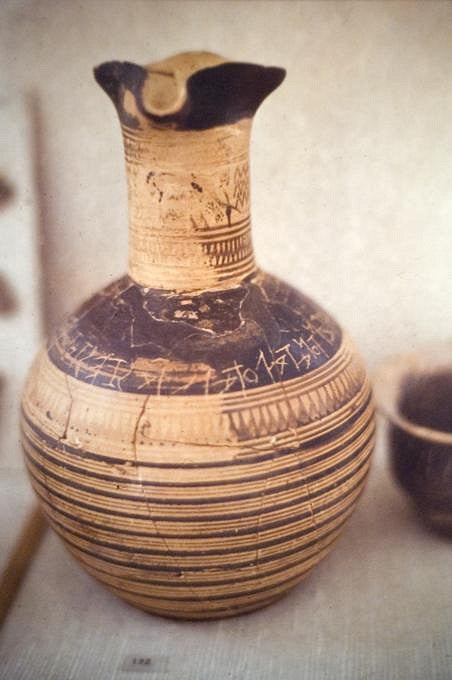The department offers three minors. Students may choose to focus on Greek language and literature with a Greek minor, Latin language and literature with a Latin minor, or a minor in Classical Civilization minor.
Standards are the same across all minors:
- Students must have a grade point average of 2.50 or better in courses applied to the minor. At least four courses (typically 16 credits) must be taken at the University of Oregon.
- All course work must be completed with a grade of mid-C or better. No course work taken on a P/NP basis may be used toward the major or minor.
- All upper-division course work is to be completed in residence at the University of Oregon.
Greek minor
Why study Greek? What’s required to earn a degree? It’s all summarized in our minor map.
The minor in Greek requires 24 credits distributed as follows:
Upper-division courses in Greek (GRK); 4 credits of first-year Greek may be applied to this total | 16 |
Upper-division credits either in Greek (GRK) or in related courses in classics (CLAS), history (HIST), Latin (LAT), art history (ARH), English (ENG), philosophy (PHIL) religious studies (REL) | 8 |
List of Greek minor approved courses:
- ANTH 342: Archaeology of Egypt and Near East
- ANTH 349: Origins of Art
- ARH 314: History of World Architecture I
- ARH 321: Ancient Jewish Art
- ARH 322: Ancient Greek Art & Architecture
- ARH 323: Roman Art & Architecture
- ARH 326: the Acropolis of Athens
- ARH 421: Ancient Mediterranean Art
- CLAS 301: Greek and Roman Epic
- CLAS 302: Greek and Roman Tragedy
- CLAS 303: Classical Greek Philosophers
- CLAS 310: Early China, Ancient Greece
- CLAS 311: Death and Rebirth in Greece and India
- CLAS 314: Gender and Sexuality in Antiquity
- CLAS 407: Various Seminars
- GRK 301, 302, 303: Various Authors
- GRK 411: Various Authors
- HIST 412: Greek History
- HIST 414: Roman History
- HUM 361: Ancient Science and Culture
- LAT 301, 302, 303: Various Authors
- LAT 411: Various Authors
- PHIL 421: Ancient Philosophers
Latin minor
Why study Latin? What’s required to earn a degree? It’s all summarized in our minor map.
The minor in Latin requires 24 credits distributed as follows:
Upper-division courses in Latin (LAT); 4 credits of first-year Latin may be applied to this total | 16 |
Upper-division credits either in Latin (LAT) or in related courses in classics (CLAS), history (HIST), Greek (GRK), art history (ARH), English (ENG), philosophy (PHIL), religious studies (REL) | 8 |
List of Latin minor approved courses:
- ANTH 342: Archaeology of Egypt and Near East
- ANTH 349: Origins of Art
- ARH 314: History of World Architecture I
- ARH 321: Ancient Jewish Art
- ARH 322: Ancient Greek Art & Architecture
- ARH 323: Roman Art & Architecture
- ARH 326: the Acropolis of Athens
- ARH 421: Ancient Mediterranean Art
- CLAS 301: Greek and Roman Epic
- CLAS 302: Greek and Roman Tragedy
- CLAS 303: Classical Greek Philosophers
- CLAS 310: Early China, Ancient Greece
- CLAS 311: Death and Rebirth in Greece and India
- CLAS 314: Gender and Sexuality in Antiquity
- CLAS 407: Various Seminars
- GRK 301, 302, 303: Various Authors
- GRK 411: Various Authors
- HIST 412: Greek History
- HIST 414: Roman History
- HUM 361: Ancient Science and Culture
- LAT 301, 302, 303: Various Authors
- LAT 411: Various Authors
- PHIL 421: Ancient Philosophers
Classical Civilization minor
Why study Classical Civilization? What’s required to earn a degree? It’s all summarized in our minor map.
The minor in Classical Civilization requires 24 credits distributed as follows:
Lower or upper-division courses from approved list (see below). | 8 |
Upper-division courses from approved list (see below). | 16 |
List of Classical Civilization minor approved courses:
- ANTH 145: Principle of Archaeology
- ANTH 150: World Archaeology
- ANTH 342: Archaeology of Egypt and Near East
- ANTH 349: Origins of Art
- ARH 204: History of Western Art I
- ARH 314: History of World Architecture I
- ARH 321: Ancient Jewish Art
- ARH 322: Ancient Greek Art & Architecture
- ARH 323: Roman Art & Architecture
- ARH 326: the Acropolis of Athens
- ARH 421: Ancient Mediterranean Art
- CLAS 110: Classical Mythology
- CLAS 201: Greek Life and Culture
- CLAS 202: Roman Life and Culture
- CLAS 301: Greek and Roman Epic
- CLAS 302: Greek and Roman Tragedy
- CLAS 303: Classical Greek Philosophers
- CLAS 310: Early China, Ancient Greece
- CLAS 311: Death and Rebirth in Greece and India
- CLAS 314: Gender and Sexuality in Antiquity
- CLAS 407: Various Seminars
- GRK 301, 302, 303: Various Authors
- GRK 411: Various Authors
- HIST 101: Ancient Mediterranean
- HIST 104: World History
- HIST 412: Greek History
- HIST 414: Roman History
- HUM 101: Introduction to the Humanities I
- HUM 361: Ancient Science and Culture
- LAT 301, 302, 303: Various Authors
- LAT 411: Various Authors
- PHIL 421: Ancient Philosophers


